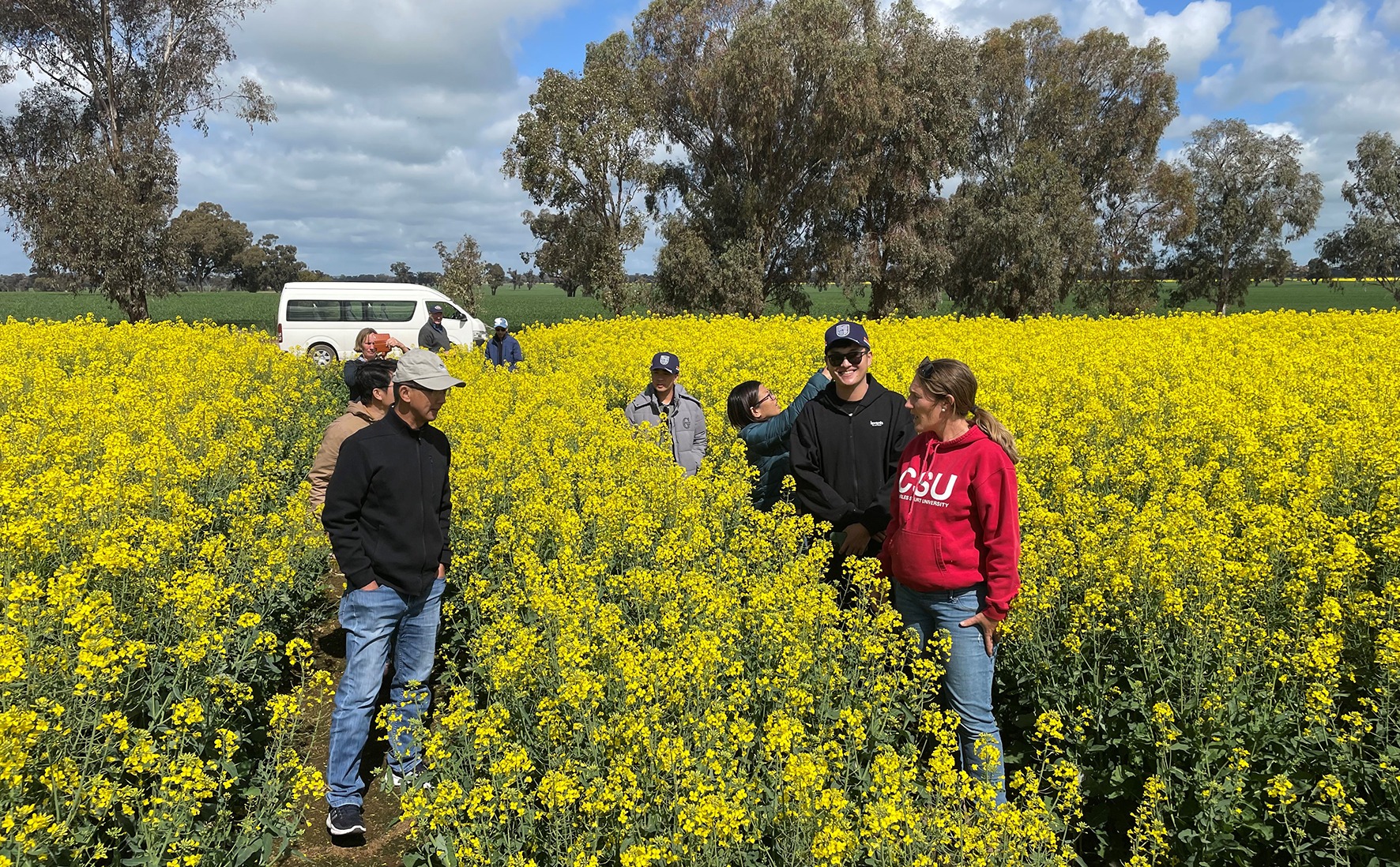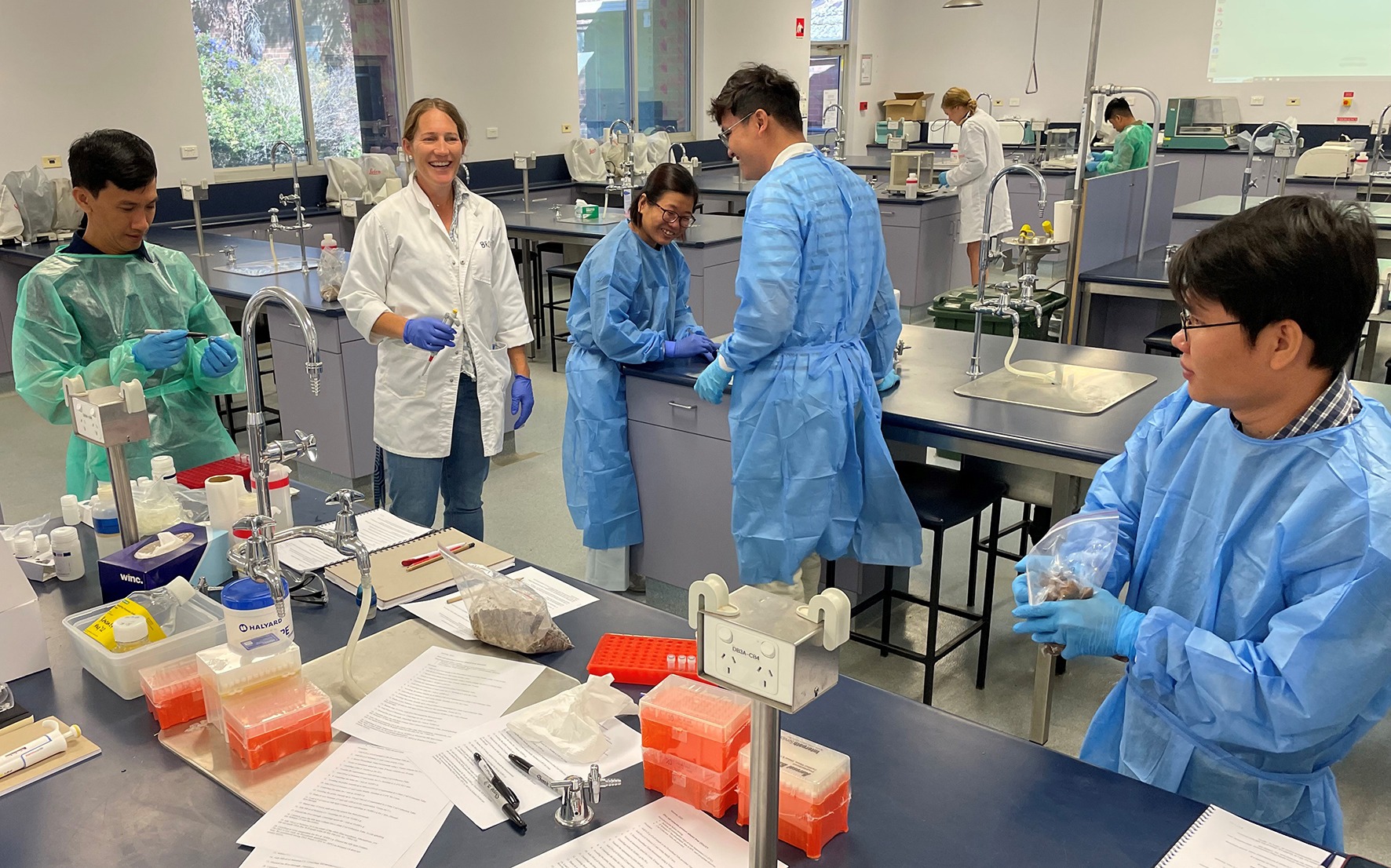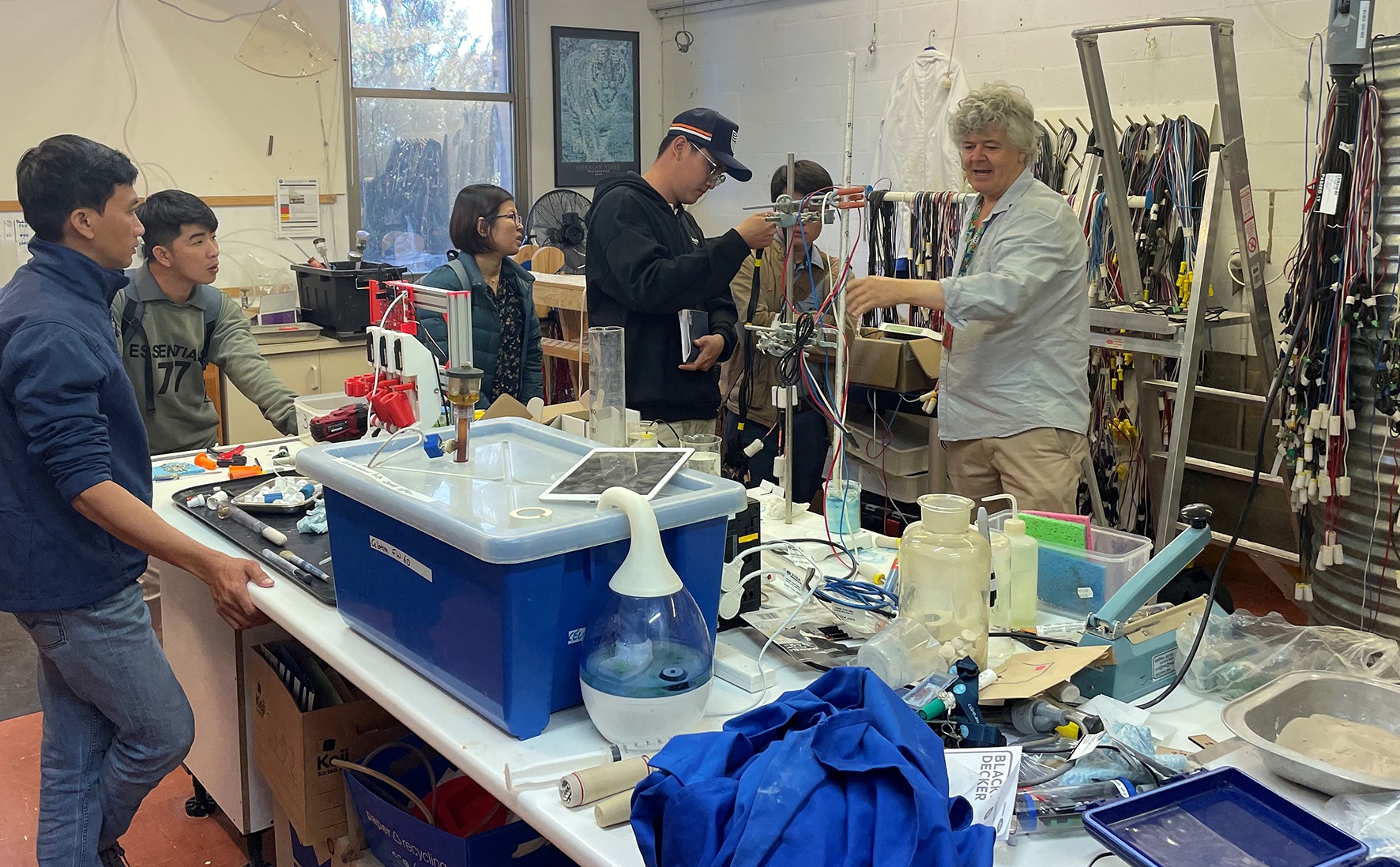

Strengthening soil science linkages between Australia and Vietnam
January 25, 2024

The Crawford Fund’s New South Wales Committee recently supported Charles Sturt University (CSU) soil researchers Dr Brooke Kaveney and A/Prof Jason Condon to deliver a training program for university staff from Vietnam as part of a long-term collaboration dating back to 2006.
Situated in the middle of the Vietnamese Mekong Delta in the largest delta city is Can Tho University (CTU), southern Vietnam’s highest ranked agricultural education provider. With the delta providing more than 50 per cent of the country’s food, CTU is well positioned to deliver impactful research and train the agricultural professionals of the future. More than 6600 km away in Australia positioned in the highly productive food producing region of the Riverina is Wagga Wagga, home of Charles Sturt University (CSU) where agricultural research and teaching is a university flagship.
“Given these similarities, collaboration between the CSU and CTU is a natural fit,” explained Jason.
“Soil science staff have been collaborating since 2006 in student and staff exchange, co-supervision of honours and higher degree students, ACIAR projects and Crawford Fund training programs. Collaborative research has involved nutrient cycling, compost use, salinity management, alternative crops to rice, and their effects on livelihoods in rural communities,” said Jason.

“However, as the impacts of climate change become apparent, the nature of research required in the delta is changing. More emphasis is being placed on low risk, farmer profitable practices involving field quantification of greenhouse gas emissions, carbon sequestration, and soil biological interactions with organic amendments,” he said.
To help meet these research needs, six staff members from CTU participated in a 10-day Crawford Fund training program in September 2023. The project was also supported by financial and technical support from CSU and Select Carbon Pty Ltd and drew on technical support from current and ex NSW DPI staff.
“The program was successful in building a solid understanding of field trial planning, experimental design and implementation. The theory of new scientific methodologies and sampling practices including soil microbiology were taught and reinforced through practical learning components. These experiences helped develop participant confidence in applying different field-based techniques to their own soils research in Vietnam, shortening the adoption pathway to impact,” said Jason.

The program provided participants the opportunity to see and learn about greenhouse gas samplers from trainers with experience developing and using this equipment. The relationships built during these sessions will be of great benefit as the equipment will be implemented in Vietnam in future projects according to Jason.
Exposure to broad-acre Australian farming systems gave trainees an opportunity to understand how technology adoption can be used as a solution to increased farm scale. An appreciation of the similarities of the challenges facing Australian and Vietnamese farmers (labour, costs, environmental sustainability, climate change) was gained in conversations with host farmers.
“Three participants are considering higher degree study and this program enabled them to experience the facilities and staff support offered by CSU, and encouraged them to look for scholarship opportunities,” said Jason.
“Furthermore, an Honours student from CSU joined the training and will be travelling to Vietnam to visit with the trainees in 2024. These relationships built within the program will be further developed in future student learning opportunities both in Australia and Vietnam in the years to come.”
“The program was successful in creating new linkages between early career researchers. These relationships are the genesis of future collaborations and provide countless opportunities for the people involved. Thanks to the Crawford Fund for the support!” said Jason.




 0
0